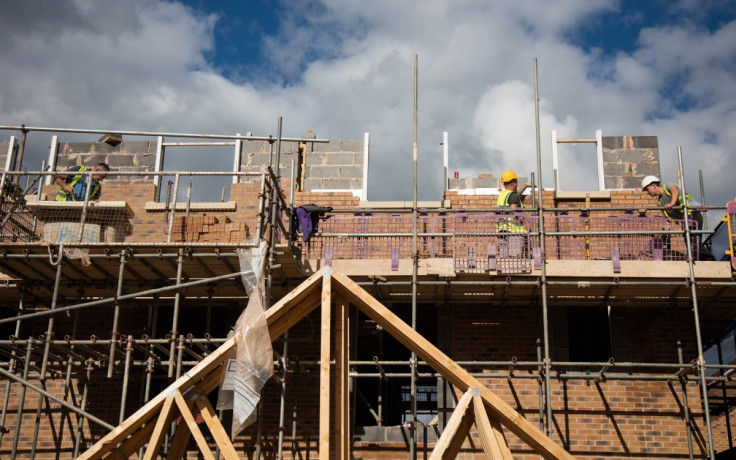UK housing: Starter homes 'unlikely' to increase housebuilding, says Savills

The government's flagship home-ownership policy of discounted 'starter homes' for first-time buyers is unlikely to result in significantly more housing, says a report by Savills, despite a serious supply shortage which needs an urgent solution. Moreover, developments may deliver less affordable housing, such as accommodation for social rent, because starter homes would make it costlier for developers.
Savills, a property services firm, said there is "huge overlap" between the potential market for Starter Homes and that in other first-time buyer-focused schemes, including Help to Buy and shared ownership. Research by the Department for Communities and Local Government (DCLG) found 57% of homes sold under Help to Buy scheme, which offers low deposits and cheap mortgage credit, would have been built anyway. The Savills report concludes it "seems unlikely that starter homes will fare any better in terms of additionality".
The current plans for starter homes are part of the Housing and Planning Bill, which is nearing the end of its journey through Parliament. The government is also consulting on the finer details of the policy. On current plans, starter homes, which the government hopes will number 200,000 by 2020, will be available to first-time buyers aged under-40. There is a 20% discount and buyers will not be able to sell on at the property's full-market value for at least five years. The price cap for starter homes is £250,000 in England and £450,000 in London, where house prices are much higher than the rest of the country.
Savills said the broad criteria for who qualifies for starter homes and the big discount means it is likely they will cannibalise demand for the other schemes, rather than increase it by making home-ownership a possibility for new groups of people.
Affordable housing
The report also echoed concerns from the Local Government Association (LGA), which represents councils across England and Wales, that the programme will result in the construction of fewer traditional affordable homes. The Housing Bill would allow Starter Homes to fall under the official definition of affordable housing. This means developers could fulfill their obligations to build affordable housing under the section 106 planning rules with Starter Homes, rather than housing for social rent, for example.
Councils say this will leave them short of the much-needed social housing for rent in their areas. Savills' own analysis suggests that the way Starter Homes programme impacts the delivery of affordable housing will depend on the strictness with which councils have enforced section 106 obligations in the past. Those areas with higher levels of affordable housing delivery will likely see a relatively small impact from starter homes, and vice versa, though there will still be fewer built overall.
"These results do not include consideration of the potential cannibalisation by starter homes of market sales, including those using Help to Buy," Savills said. "Unless starter homes can be clearly differentiated, there is a risk that there will be a range of products available on development sites, all appealing to first-time buyers within a narrow range of price points.
"The 20% discount means that starter homes are likely to be the more attractive option for buyers, detracting from the sales rate of full market sale homes, impacting cashflow and having a downward effect on blended land value. The consequence of this would be that lower proportions of traditional affordable housing could be viably delivered alongside starter homes than this analysis suggests."
House of Lords
The Housing Bill is undergoing its third reading in the House of Lords, the final stage where changes to the wording of legislation can be made before it becomes law, though MPs must still approve the final text. A coalition of Labour, Liberal Democrat and crossbench peers backed two amendments watering down the government's plan. The government now faces compromising on its original plan to avoid delaying the bill's journey onto the statute book, or submitting its own amendments and winning peers over.
One amendment would force buyers of starter homes to repay the discount if they sold up within 20 years, though this amount would be reduced by one-twentieth for each year of occupation. It was backed by a majority of 94 peers. Another amendment gives local councils control over how many starter homes can be built in their areas, and was backed by a majority of 86 peers.
"The government believes it is wrong that a 30-year-old couple's aspirations should be thwarted by having to wait until they are 50 to benefit from the full value of their starter home," said Brandon Lewis, the Conservative housing minister. "We will listen carefully to the points made in the debate but our manifesto commitment to introduce starter homes at a 20% discount for first-time buyers is unwavering."
It is a priority of the government to increase home-ownership. It argues starter homes will make it easier for aspiring first-time buyers to get onto the property ladder by improving affordability. A shortage of housing in some areas of England, particularly London and the South East, has driven up house prices and rents, making it harder to buy a home. Housebuilding is running at around half the level needed to meet demand, though it is growing.
© Copyright IBTimes 2025. All rights reserved.





















